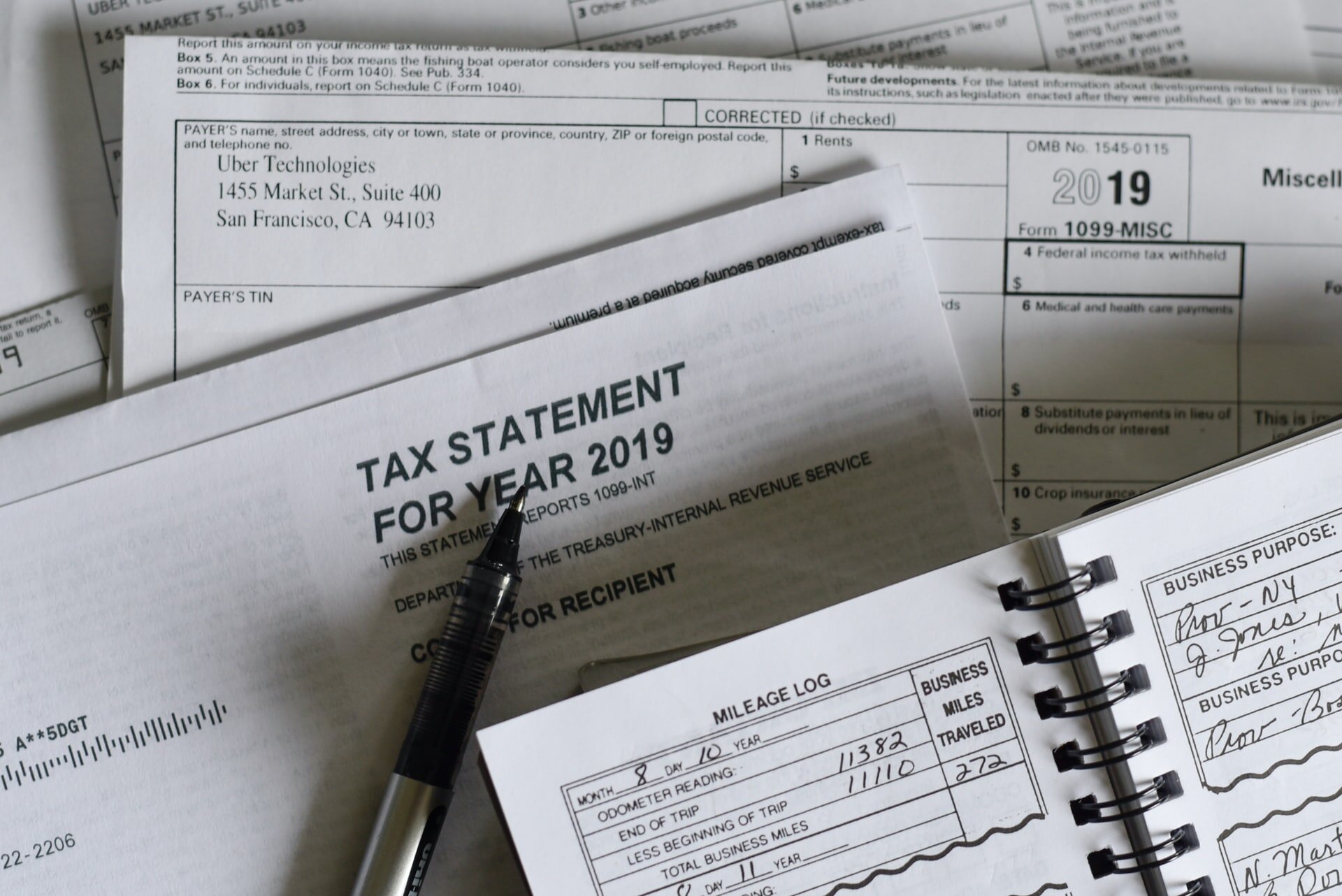Home>Finance>How To Respond To Court Summons For Credit Card Debt


Finance
How To Respond To Court Summons For Credit Card Debt
Modified: December 29, 2023
Learn how to effectively respond to court summons for credit card debt. Our finance experts provide valuable tips and guidance to navigate this challenging situation.
(Many of the links in this article redirect to a specific reviewed product. Your purchase of these products through affiliate links helps to generate commission for LiveWell, at no extra cost. Learn more)
Table of Contents
- Introduction
- Understanding the Court Summons for Credit Card Debt
- Step 1: Carefully Read the Court Summons
- Step 2: Consult with an Attorney
- Step 3: Gather All Relevant Documents
- Step 4: Drafting Your Response
- Step 5: Filing Your Response with the Court
- Step 6: Attend Court Hearings, if Required
- Step 7: Negotiate a Settlement or Payment Plan
- Step 8: Seek Legal Advice if You’re Unable to Handle the Case on Your Own
- Conclusion
Introduction
Receiving a court summons for credit card debt can be a daunting and overwhelming experience. It is crucial to understand the steps involved in responding to a court summons to ensure that you are well-prepared and can protect your rights and financial well-being. This article will guide you through the process of responding to a court summons for credit card debt, providing invaluable tips and insights along the way.
Dealing with credit card debt can be stressful enough, but when legal action is involved, it can escalate the situation and add to your worries. It’s important to remember that receiving a court summons does not necessarily mean that you will automatically lose your case or be forced to pay the full amount claimed by the creditor. With the right knowledge and strategic steps, you can assert your rights and potentially find a favorable resolution.
Understanding the court summons and the legal implications involved is the first step towards effectively responding to the situation. This article will break down the process into several manageable steps, providing guidance on what to do at each stage. It is important to note that while this article aims to provide general information and tips, it is not a substitute for professional legal advice. Consulting with an attorney who specializes in debt and consumer law is highly recommended, as they can provide personalized guidance based on your specific circumstances.
By proactively responding to the court summons and taking the necessary steps, you can improve your chances of reaching a favorable resolution to the credit card debt dispute. Whether that means negotiating a settlement, disputing the debt, or presenting a strong defense in court, understanding the process and having the right support can make all the difference.
Understanding the Court Summons for Credit Card Debt
A court summons for credit card debt is a legal document that notifies you of a lawsuit filed against you by a creditor or debt collection agency. It is important to carefully review and understand the contents of the court summons to effectively respond. Here are key points to consider:
- Plaintiff Information: The court summons will provide details about the party filing the lawsuit, known as the plaintiff. This may be the original creditor or a debt collection agency that has purchased the debt. Take note of their contact information and legal representation, if applicable.
- Lawsuit Details: The court summons will outline the nature of the lawsuit, including the total amount claimed, interest accrued, and any additional fees. It is essential to review the stated amount carefully and compare it to your own records to ensure accuracy.
- Court Information: The summons will provide information regarding the court where the lawsuit has been filed, such as the name, location, and case number. This information is crucial when preparing your response and attending court hearings, if required.
- Response Deadline: The court summons will specify the deadline by which you must file a response. It is vital to adhere to this deadline and ensure your response is submitted in a timely manner. Failure to respond within the specified timeframe may result in a default judgment in favor of the plaintiff.
- Legal Basis for the Lawsuit: The court summons should outline the legal basis for the lawsuit, such as breach of contract or failure to make payments. Understanding the specific claims against you can help you craft a targeted response.
Taking the time to thoroughly understand the court summons is crucial when formulating your response. It is recommended to seek professional legal advice to guide you through this process, as they can help you interpret the summons and determine the best course of action based on your unique circumstances.
Step 1: Carefully Read the Court Summons
When you receive a court summons for credit card debt, it is crucial to carefully read and understand the document. The court summons contains vital information about the lawsuit, and it sets the foundation for how you should proceed with your response. Here’s what you need to do:
- Set Aside Dedicated Time: Find a quiet and uninterrupted space where you can fully concentrate on reading and comprehending the court summons. This will ensure that you don’t miss any important details or deadlines.
- Read Carefully: Take your time to thoroughly read and understand each section of the court summons. Pay close attention to the plaintiff information, lawsuit details, court information, response deadline, and the legal basis for the lawsuit.
- Take Notes: Make notes of any questions or concerns that arise during your reading. This will help you in seeking guidance from a legal professional or conducting further research on specific aspects of the lawsuit.
- Compare with Your Records: Compare the information provided in the court summons with your own records of the credit card debt. Verify the accuracy of the claimed amount, interest, and any additional fees mentioned in the summons.
- Understand the Legal Jargon: If you come across any unfamiliar legal terms or phrases, take the time to research and understand their meanings. This will help you grasp the nuances of the lawsuit and better navigate the legal process.
By carefully reading the court summons, you can gain a clear understanding of the allegations against you, the amount claimed by the plaintiff, and the specific legal basis for the lawsuit. This knowledge will provide you with the foundation necessary to proceed with your defense or negotiation strategy effectively.
It is important to note that if you have difficulty understanding the court summons or feel overwhelmed by the legal terminology, it is highly recommended to seek the assistance of an attorney specializing in debt and consumer law. They can provide invaluable guidance and help you navigate through the complexities of the legal process.
Step 2: Consult with an Attorney
After carefully reading the court summons for credit card debt, it is highly advisable to consult with an attorney who specializes in debt and consumer law. An experienced attorney can provide invaluable guidance and advice tailored to your specific situation. Here are the key reasons why consulting with an attorney is essential:
- Legal Expertise: Attorneys have in-depth knowledge of the legal system and can help you understand the intricacies of your case. They can analyze the details of the court summons, assess the strength of your defense, and advise you on how to proceed.
- Personalized Advice: Every individual’s circumstances are unique. An attorney will take the time to understand your specific financial situation, assess the evidence, and provide personalized advice and strategies to help you achieve the best possible outcome.
- Legal Representation: If necessary, an attorney can represent you in court proceedings. They can present your case effectively, cross-examine witnesses, and argue on your behalf, maximizing your chances of success.
- Negotiation Skills: Attorneys are skilled negotiators who can engage in productive discussions with the plaintiff’s legal team. They can explore potential settlement options, payment plans, or debt reduction strategies to help you resolve the credit card debt dispute in a favorable manner.
- Legal Documentation: An attorney can assist you in drafting your response to the court summons, ensuring that it adheres to legal standards and effectively addresses the claims made against you. They can also help you gather the necessary evidence to support your defense.
During your consultation with an attorney, be sure to provide them with all relevant documents related to your credit card debt, including the court summons, credit card statements, and any correspondence with the creditor or debt collection agency. This will enable them to assess your case thoroughly and provide accurate guidance.
Remember that time is of the essence when dealing with a court summons. It is crucial to consult with an attorney as soon as possible to ensure that you meet all required deadlines and have ample time to prepare your defense or negotiation strategy.
While hiring an attorney may involve some costs, their expertise and guidance can be instrumental in securing a favorable outcome in your credit card debt case.
Step 3: Gather All Relevant Documents
To effectively respond to a court summons for credit card debt, it is essential to gather all relevant documents pertaining to your case. These documents will not only help you understand your financial situation better but also provide evidence to support your defense or negotiation strategy. Here’s what you need to do:
- Court Summons: Keep a copy of the court summons itself, as this is the primary document that initiated the legal proceedings. Make sure you have both the original and any subsequent amendments or updates.
- Credit Card Statements: Collect all credit card statements associated with the debt in question. These statements will serve as evidence of your payment history, any disputed charges, and the outstanding balance at various points in time.
- Correspondence: Gather any letters, emails, or other forms of communication exchanged between you and the creditor or debt collection agency. This includes disputes you may have raised regarding the debt, settlement offers, or payment arrangements.
- Financial Records: Compile your financial records, such as bank statements, tax returns, and income documentation. These documents can help establish your ability to pay or demonstrate any extenuating financial circumstances that may affect your ability to settle the debt.
- Debt Validation: If you have previously requested debt validation from the creditor or debt collection agency, retain copies of all documentation related to that process. Debt validation ensures that the debt is accurate and legally enforceable.
- Contract or Agreement: If you have a copy of the credit card agreement or contract, include it in your documentation. This can be helpful for understanding your rights and responsibilities as a credit card holder and may support your position in the case.
- Any Other Relevant Documentation: Include any other documents that you believe are relevant to your case. This could include proof of identity, evidence of fraudulent activity, or any other information that can contribute to your defense or negotiation efforts.
Organize these documents in a systematic manner, making it easier for both you and your attorney to access and reference them when needed. Consider creating a digital folder or using a filing system to maintain a clear record of all relevant documents.
Having all the necessary documents at hand will not only strengthen your case but also demonstrate your preparedness and commitment to resolving the credit card debt issue responsibly.
Step 4: Drafting Your Response
Once you have carefully reviewed the court summons, consulted with an attorney, and gathered all the relevant documents, it’s time to draft your response. Your response is a crucial document that outlines your position and defenses regarding the credit card debt lawsuit. Here are some important factors to consider when drafting your response:
- Follow Legal Guidelines: Review the court rules and guidelines for responding to a lawsuit. Ensure that your response adheres to the required format, word count, and any specific instructions provided by the court.
- Clearly State Your Position: Begin your response by clearly stating whether you admit or deny the allegations made against you in the court summons. Be thorough in explaining the reasons behind your position, providing supporting evidence or legal arguments where applicable.
- Address Each Claim: Carefully address each claim made by the plaintiff in the court summons. If you believe their claims are inaccurate or unsubstantiated, explain why. If you have any counterclaims or defenses, outline them in a concise and coherent manner.
- Present Your Evidence: Include copies of relevant documents to support your defense or any counterclaims you may have. These may include credit card statements, payment records, correspondence, or any other evidence that weakens the plaintiff’s case or strengthens your own.
- Be Professional and Objective: Maintain a professional and objective tone throughout your response. Stick to the facts and avoid emotional or confrontational language. Present your arguments in a logical and clear manner to strengthen your position.
- Consult with Your Attorney: Seek guidance from your attorney throughout the drafting process. They can review your response, provide feedback, and ensure that your arguments are sound and effective.
- Proofread and Revise: Before submitting your response to the court, carefully proofread it for any grammatical or spelling errors. Revise any sections that may need clarification or improvement. A well-written and error-free response will enhance your credibility.
Remember, your response is a critical document that can significantly impact the outcome of your case. Take the time to draft a comprehensive and persuasive response that effectively addresses the claims made against you.
Once you are satisfied with your response, work closely with your attorney to finalize and file it with the court within the specified deadline. Time is of the essence, so ensure that you adhere to the court’s requirements for submitting your response promptly.
Step 5: Filing Your Response with the Court
After carefully drafting your response to the court summons for credit card debt, it’s time to file your response with the court. Filing your response is a crucial step that ensures your position is officially acknowledged by the court. Here’s what you need to know:
- Review Filing Requirements: Familiarize yourself with the court’s specific filing requirements. Ensure that you comply with any formatting guidelines, word limits, or additional documents that need to accompany your response.
- Make Sufficient Copies: Prepare enough copies of your response to fulfill the filing requirements. Generally, you will need to provide one original copy for the court and copies for the plaintiff’s attorney or any other relevant parties involved in the lawsuit.
- Prepare the Filing Fee: Check if there is a filing fee associated with submitting your response. Make necessary arrangements to pay the fee, either in person or through an accepted payment method specified by the court.
- File in a Timely Manner: Ensure that you file your response within the deadline specified in the court summons. Late filings can result in adverse consequences, such as a default judgment being issued against you.
- Keep Proof of Filing: Once you have filed your response, obtain a proof of filing from the court. This may be in the form of a stamped copy or a receipt. This proof will serve as evidence that you have met the filing requirements and submitted your response within the specified timeframe.
- Provide Copies to Relevant Parties: If required, provide copies of your filed response to the plaintiff’s attorney or any other involved parties as specified by the court. This ensures that all parties have proper access to the information and can proceed with the legal process accordingly.
Filing your response is a crucial step to protect your rights and participate actively in the legal proceedings. It establishes your position in the case and ensures that the court is aware of your arguments and defenses. Be diligent in adhering to the court’s requirements and keep a record of all documentation related to the filing for future reference.
It is recommended to consult with your attorney throughout the filing process. They can guide you on any specific procedures or requirements and ensure that your response is filed accurately and on time.
Step 6: Attend Court Hearings, if Required
Depending on the nature of your credit card debt case, it may be necessary for you to attend court hearings. Attending these hearings is an essential step in the legal process, allowing you to present your defense, respond to allegations, and potentially negotiate a resolution. Here’s what you need to know:
- Review Hearing Schedule: Stay informed about the schedule of court hearings by checking the notice provided by the court or consulting with your attorney. Take note of the date, time, and location of each hearing.
- Prepare Your Appearance: Dress appropriately and professionally for court hearings, as the courtroom is a formal setting. Arrive punctually to allow sufficient time for security checks and to familiarize yourself with the courtroom environment.
- Bring Required Documentation: Bring copies of all relevant documents related to your case, including your filed response, supporting evidence, and any court-ordered documents. These documents will assist you in presenting your defense or supporting any negotiation or settlement discussions.
- Follow Court Etiquette: Show respect for the court by following appropriate courtroom etiquette. This includes addressing the judge and opposing party respectfully, refraining from interrupting others, and speaking clearly and concisely when presenting your case.
- Listen Attentively: Pay close attention to the proceedings, including any statements made by the opposing party and any instructions provided by the judge. This will help you respond effectively and address any issues that may arise during the hearing.
- Present Your Case: If given the opportunity to present your defense or arguments, do so confidently and clearly. Refer to your prepared documentation, cite relevant laws or regulations, and address any points raised by the opposing party. Be truthful and stick to the facts to strengthen your position.
- Cooperate with the Process: If the court directs you to participate in alternative dispute resolution methods, such as mediation or settlement conferences, approach these discussions with an open mind and a willingness to find a mutually agreeable resolution.
- Consult with Your Attorney: Throughout the court hearings, consult with your attorney for guidance and assistance. They can provide you with valuable advice, help formulate your arguments, and navigate the legal proceedings.
Attending court hearings is an opportunity to make your case and assert your rights. It is important to be prepared, respectful, and attentive during these proceedings. Cooperate with the court’s instructions and remain focused on presenting your defense or pursuing a resolution that aligns with your interests.
If you are unable to attend a scheduled court hearing, notify the court and your attorney as soon as possible to discuss any necessary rescheduling or alternative arrangements.
Step 7: Negotiate a Settlement or Payment Plan
In many credit card debt cases, there is room for negotiation and the possibility of reaching a settlement or payment plan with the creditor or debt collection agency. Negotiating can provide an opportunity to resolve the debt in a mutually beneficial manner. Here’s what you need to know about negotiating a settlement or payment plan:
- Evaluate Your Financial Situation: Assess your current financial condition to determine what you can realistically afford to pay. Consider your income, expenses, and any other outstanding debts. This information will be crucial in determining the terms of a potential settlement or payment plan.
- Understand Your Rights: Familiarize yourself with your rights and protections as a debtor. Educate yourself on applicable consumer protection laws, such as the Fair Debt Collection Practices Act (FDCPA), which outlines the boundaries for debt collection practices.
- Communicate with the Creditor: Open a dialogue with the creditor or debt collection agency to express your willingness to resolve the debt. Make sure to keep written records of all communication, including dates, times, and any agreements reached.
- Negotiate in Good Faith: Approach negotiations with a cooperative mindset and a willingness to find a reasonable solution. Be prepared to make an initial offer or counteroffer based on your financial capabilities, taking into account the total amount owed and any additional interest or fees.
- Seek Professional Guidance: If you find negotiating challenging, consider working with a debt settlement attorney or a credit counseling agency. These professionals can advocate on your behalf and help facilitate productive discussions with the creditor.
- Get All Agreements in Writing: Once you reach a settlement or payment plan agreement, ensure that all terms are documented in writing. The agreement should clearly outline the amount to be paid, the timeframe for payments, and any other conditions or considerations agreed upon.
- Stick to the Agreement: Once a settlement or payment plan is reached, make all payments promptly and according to the agreed-upon terms. Fulfilling your obligations will help you resolve the debt and restore your financial stability.
- Consult with Your Attorney: Throughout the negotiation process, consult with your attorney to ensure that your rights are protected, and the terms of the agreement are fair and reasonable.
Negotiating a settlement or payment plan can be a viable option to resolve your credit card debt. By approaching the process with a clear understanding of your financial situation, open communication, and a willingness to find common ground, you may be able to reach an agreement that suits both parties involved.
Remember to prioritize your financial well-being and carefully consider the terms and implications of any settlement or payment plan proposal. Consulting with legal and financial professionals can help guide you through the negotiation process and ensure that your interests are represented effectively.
Step 8: Seek Legal Advice if You’re Unable to Handle the Case on Your Own
If you find yourself overwhelmed or unable to handle your credit card debt case on your own, seeking professional legal advice is essential. Legal professionals experienced in debt and consumer law can provide the expertise needed to navigate the complexities of the legal system. Here’s why you should consider seeking legal advice:
- Understanding of the Law: Attorneys specializing in debt and consumer law have a comprehensive understanding of the legal framework surrounding credit card debt cases. They can interpret the law, assess its implications on your case, and provide you with strategic guidance.
- Personalized Legal Strategy: Every case is unique, and a skilled attorney will develop a personalized legal strategy based on your specific circumstances. They can evaluate the strengths and weaknesses of your case and guide you on the most effective course of action.
- Legal Protection: Having legal representation protects your rights and interests throughout the legal process. Attorneys are well-versed in the tactics used by creditors and can help shield you from unfair or illegal practices.
- Negotiation Skills: Attorneys are skilled negotiators with experience in handling debt settlement discussions. They can advocate on your behalf, negotiate favorable terms, and help achieve the best possible outcome for your situation.
- Proper Documentation and Procedures: Lawyers know the necessary documentation, filing requirements, and court procedures required for your case. They can ensure that all paperwork is accurate and filed correctly, reducing the risk of procedural errors that may weaken your position.
- Representation in Court: If your case proceeds to court, legal representation is crucial. An attorney can present your case persuasively, cross-examine witnesses, and effectively argue on your behalf, increasing your chances of a favorable outcome.
- Knowledge of Debt Collection Laws: Attorneys are well-versed in debt collection laws, including regulations outlining fair debt collection practices. They can identify any violations and take appropriate action to protect your rights.
- Peace of Mind: Hiring an attorney can provide you with the peace of mind that comes from knowing you have a legal professional advocating for your interests. This can alleviate stress and allow you to focus on other aspects of your life.
If you feel overwhelmed or unsure about how to proceed with your credit card debt case, consulting with an attorney specializing in debt and consumer law is highly recommended. They can provide the guidance and expertise needed to navigate the legal complexities and work towards a favorable resolution.
Remember, legal representation ensures that your rights are protected, and your interests are professionally advocated for throughout the entire process.
Conclusion
Responding to a court summons for credit card debt can be a challenging and intimidating process. However, by following the steps outlined in this guide, you can navigate the legal proceedings effectively and protect your rights. Here’s a summary of the steps covered:
1. Carefully Read the Court Summons: Thoroughly review the court summons to understand the allegations, lawsuit details, and response deadline.
2. Consult with an Attorney: Seek the expertise of an attorney specializing in debt and consumer law to guide you through the process and provide personalized advice.
3. Gather All Relevant Documents: Collect all the necessary documents, such as the court summons, credit card statements, and correspondence, to support your defense or negotiation strategy.
4. Draft Your Response: Craft a well-structured response that clearly presents your position, addresses the claims, and includes supporting evidence.
5. File Your Response with the Court: Ensure that you comply with the court’s filing requirements and submit your response within the specified deadline.
6. Attend Court Hearings, if Required: Attend scheduled court hearings to present your defense, respond to allegations, and engage in negotiation or settlement discussions.
7. Negotiate a Settlement or Payment Plan: Explore the possibility of reaching a mutually agreeable settlement or payment plan with the creditor to resolve the debt.
8. Seek Legal Advice if Needed: If you find the process overwhelming or require further assistance, consult with an attorney who can protect your rights and provide guidance.
Remember, this guide provides general information and tips. It is essential to seek professional legal advice tailored to your specific situation. With the right knowledge, strategic approach, and legal support, you can navigate the legal process with confidence and work towards a favorable resolution of your credit card debt case.
Dealing with credit card debt is a stressful experience, but you have rights and options. By taking proactive steps, understanding the legal process, and seeking appropriate guidance, you can assert your rights, protect your financial well-being, and work towards a positive outcome. Remember, you are not alone in this process, and seeking the assistance of legal professionals can greatly increase your chances of success.














